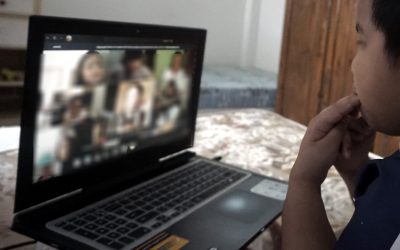A network of child’s rights advocates in the Philippines welcomed a new law against online sex abuse and the exploitation of children.
“The passage of this new law marks the dawn of safer online spaces for children,” read a statement from the Child Rights Network, an alliance of organizations and agencies pushing for children’s rights.
Republic Act No. 11930 or the Anti-Online Sexual Abuse and Exploitation of Children (OSAEC) Law lapsed into law on July 30.
“It is our fervent wish for Filipino children to safely navigate the virtual space without fear,” said Romeo Dongeto, CRN convenor in a statement on August 4.
He said RA 11930 “symbolizes the break of dawn heralding a future where no more children are harmed, abused, and victimized through the Internet.”
A study done by the International Justice Mission released in 2020, global law enforcement data revealed that the Philippines was the world’s largest source country of OSAEC cases.
The Philippines received more than eight times as many referrals as any other country identified in the study.
The pandemic in the past two years has “undoubtedly aggravated” the situation, said Dongeto. Coupled with economic difficulties, the situation made it easier for OSAEC perpetrators to prey on children.
Data from the US-based National Center for Missing and Exploited Children showed how rapidly OSAEC cases increased during the pandemic, noting that there was a 209 percent increase in the cyber tip reports for the Philippines, from 2020 (1,294,750 cyber tips) compared to 2019 (418,422 cyber tips).
These figures complement the findings of a risk assessment report released by the Philippine Anti-Money Laundering Council in 2020, which showed that there had been a significant rise in the suspicious financial transactions reporting related to OSAEC in 2020.
From the 597 suspicious transaction reports recorded in May 2019, the figures bloated to 5,634 in May 2020.
“At a time when even basic social services, especially education, largely depend on the Internet, the new law holistically responds to the advocates’ longstanding call for stronger online child safety regulations,” said Dongeto.
He said RA 11930 grants “potent tools” to law enforcement authorities to swiftly pursue perpetrators of OSAEC and “effectively tear the veil of anonymity that hides their nefarious acts in cyberspace.”
The new law also lays down the responsibilities of Internet intermediaries, including Internet Service Providers (ISPs), Internet Content Hosts, Social Networking Sites, and banking and financial institutions.
“Essentially, RA 11930 plugs fundamental loopholes in existing laws and regulations concerning OSAEC by providing clear definitions that succinctly consider the often-ephemeral quality of OSAEC committed through the viewing or live-streaming of online content that does not need the offender to do any act of downloading or retaining any form of child sexual abuse materials,” said Dongeto.









